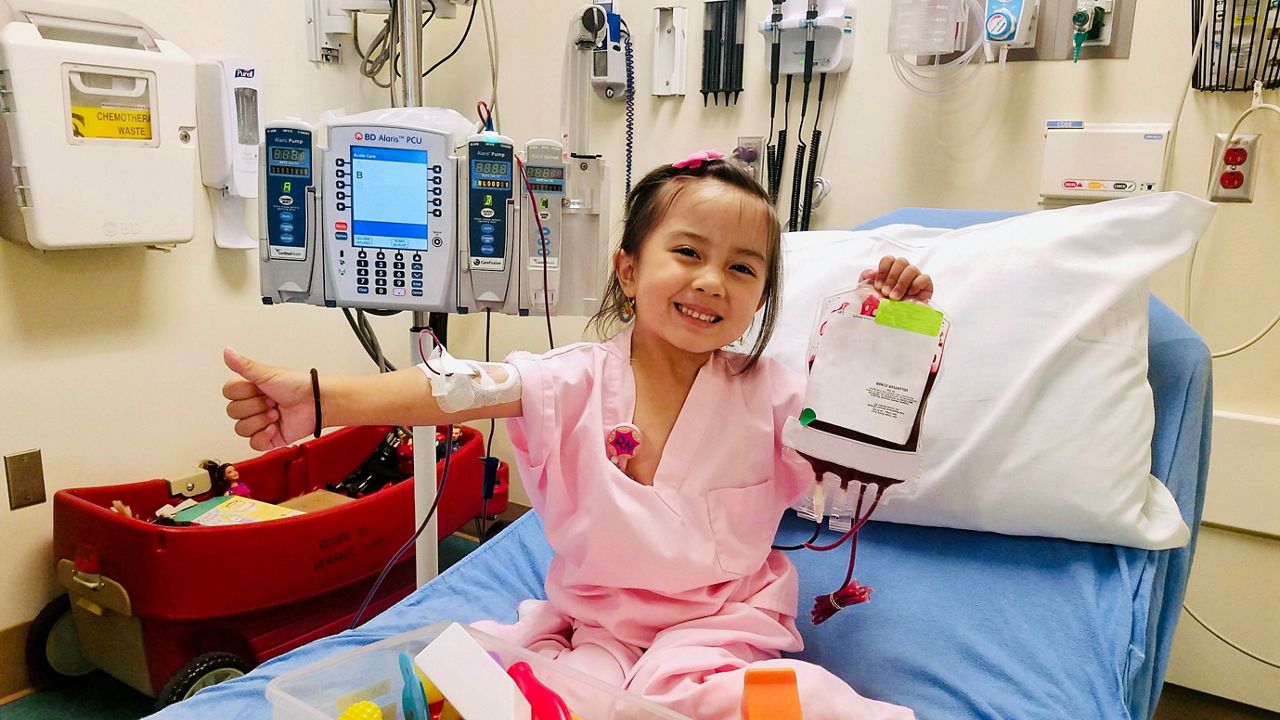Blood
Precision Blood gives better match to transfused patients
SAN DIEGO — The San Diego Blood Bank is going beyond the basic blood types to save people who need transfusions.
The San Diego Blood Bank’s Precision Blood Program is a groundbreaking blood-typing system that matches blood donation recipients with blood donors of more than 30 different blood groups using 300 antigen markers and has proved to reduce adverse reactions experienced by patients who are blood transfused.
Nine-year-old Kamila Saradpon was born with a genetic blood disorder known as thalassemia. She needs blood transfusions every three weeks to live.
“You just sit there and then you can like watch or play video games or something like that and that’s what I usually do at my blood transfusion,” Kamilla said. “It doesn’t really hurt that much, unless you forget to put numbing cream on.”
Kamilla was one of the first patients to receive Precision Blood.
Her mom, Maria Saradpon, says this breakthrough came at the perfect time because Kamilla had started developing antibodies against certain blood types, which can happen to people who receive frequent blood transfusions.
“It gave me so much hope because I was getting worried. You know, what do you do when this is the only thing that keeps her going? And if there’s no more match, what do we do?” Saradpon said. “And so with Precision Blood, we know that her pool will stay bigger for longer and we’re so grateful for that.”
Dr. Mark Edmunds is the chief medical officer at San Diego Blood Bank. Through their Precision Blood program, they’re using genetic sequencing equipment that can analyze up to 300 samples per run, gaining detailed information about the makeup of each donor’s blood, beyond just the type. He says patients who receive more precise matches might have a lower risk of bad reactions, like fever, chronic pain, kidney failure, and even death.
“To find a better match for them so that we can find the best possible match for every patient, that’s really the goal of this project,” Edmunds said.
Related Stories
Edmunds says most of their blood donors are Caucasian but they need more people from different communities to donate and diversify their blood pool so they can keep testing their genetics. In Kamilla’s case, blood donors from a similar Filipino background might prove to be the best option for her going forward.
“Help do more outreach to those communities to increase awareness of what we’re doing and the reason behind it, which of course is to collect more diverse blood to support the diverse patients that are in the communities that we serve,” he said.
Kamila has received more than 160 blood transfusions and her mom and dad hope the Precision Blood will help her live a normal life.
“It’s really important for people like Kamilla that people who look like her donate blood,” Saradpon said. “It’s just going to help her and there’s others like her.”
The San Diego Blood Bank recently received a grant that will help them expand their research and advance important clinical trials. If you would like to donate blood, you can visit sandiegoblookbank.org.

